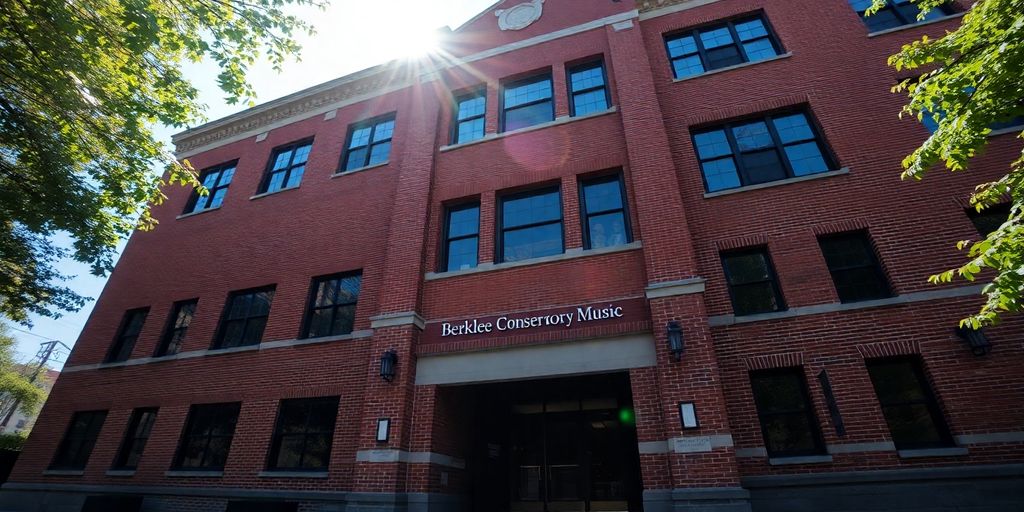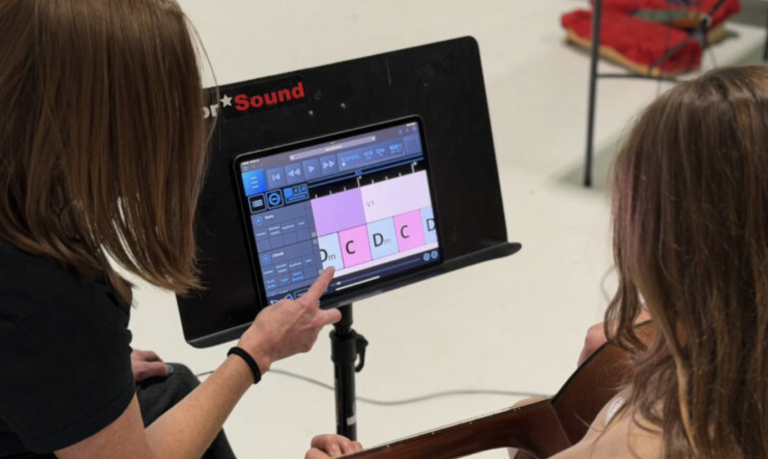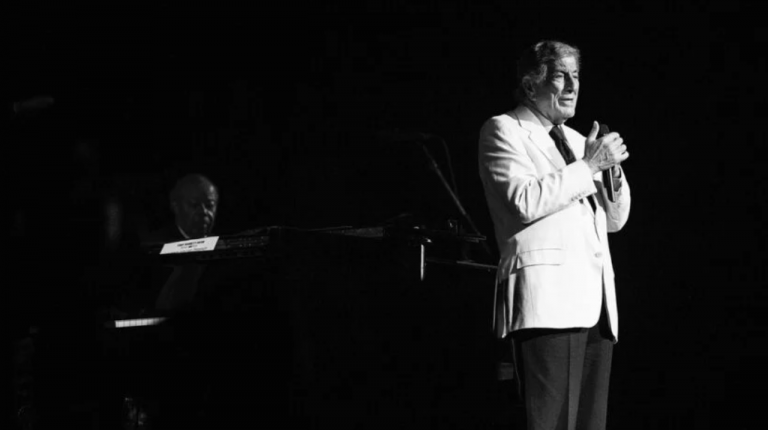
When you think about music schools, Berklee Conservatory of Music often comes up. It’s a place with a long history of doing things a bit differently. They’ve been around for a while, really focusing on preparing students for whatever the music world throws at them. It’s not just about learning old songs; it’s about understanding how music works and how to make your own. This article looks at what makes Berklee Conservatory of Music stand out, from its early days to what it offers students today.
Key Takeaways
- The berklee conservatory of music has a history of being inclusive, being one of the first to admit Black and female musicians.
- Their approach to music education combines traditional training with modern styles and social awareness.
- Berklee emphasizes a shared musical language that allows students to explore various genres and collaborate.
- The institution honors artistic achievement, particularly that of Black artists, by naming campus spaces.
- Berklee offers diverse programs, including international exchanges and summer intensifies, to prepare students for the music industry.
A Legacy of Innovation at the Berklee Conservatory of Music
Berklee has always been a place that looks forward, not just backward. It’s not just about preserving music history; it’s about actively shaping what music will be tomorrow. This forward-thinking approach is baked into everything they do, from how they teach to who they include.
Pioneering Inclusivity in Music Education
Way back when, Berklee was already breaking ground. They were one of the first conservatories to open its doors to Black and female musicians. Think about that for a second. In a time when many institutions were sticking to the old ways, Berklee was actively building a more diverse musical community. They even put together a professional string ensemble made up entirely of women, which was pretty radical for its day. This commitment to making sure everyone has a shot at learning and creating music is a big part of what makes Berklee, well, Berklee.
Foundational Principles of Musical Training
So, how do they actually teach music? It’s not about forcing everyone into one mold. Instead, they focus on a shared musical language, a kind of common vocabulary that all students can use, no matter their style. This means you get a solid technical base, but you’re also encouraged to explore. The faculty themselves come from every musical corner imaginable, bringing a huge range of styles and experiences. This setup gives students the raw materials – the techniques and tools – to express themselves in whatever genre they choose.
It’s about having a common language that we all share, regardless of style. We have this amazing faculty who represent every style you can think of, and you get this deep set of raw materials that give you the technique and the tools to be expressive in those styles. Then you can choose where you want to go.
Commitment to Artistic Excellence
This dedication to inclusivity and a strong musical foundation naturally leads to a high level of artistic output. Berklee doesn’t just want students to be good musicians; they want them to be great artists who can make their mark. They prepare students not just with technical skills but also with a sense of personal drive and a spirit of innovation. It’s this combination that has led to alumni like Quincy Jones, Gary Burton, and St. Vincent making waves across the music world. They’re not just keeping music alive; they’re actively creating its future.
The Evolving Curriculum of the Berklee Conservatory of Music
Berklee has always been about looking forward, and that really shows in how they’ve shaped their curriculum over the years. It’s not just about sticking to old ways; it’s about making sure students are ready for whatever the music world throws at them next. They’ve really leaned into making sure their programs reflect the world we live in today, which is pretty cool.
Integrating Africana Studies
One of the big ways Berklee has changed things up is by bringing Africana Studies into the mix. This isn’t just an add-on; it’s becoming a real part of how students learn and get mentored. It’s about understanding music from a wider perspective, looking at its roots and how different cultures have shaped it. This division is growing, and it’s opening up new doors for students to learn and connect.
Embracing Classical and Contemporary Fusion
Berklee isn’t afraid to mix things up. They’ve got this approach where they honor the old traditions, like classical music, but they also push hard into what’s new and happening now. It’s about finding that sweet spot where different styles can meet and create something fresh. They want students to be able to work with both the established stuff and the cutting-edge sounds, giving them the tools to make the music of the future.
The idea is that students should have a solid musical foundation, a kind of common language, but also the freedom to explore and express themselves in whatever style speaks to them. It’s about giving them the technical skills and the creative confidence to go anywhere.
Fostering Socially Conscious Artistry
Beyond just the notes and rhythms, Berklee is also focused on making music that matters. They encourage students to think about what’s happening in the world and how their art can speak to it. This means creating music that’s not only innovative but also thoughtful about social issues. It’s about using music as a way to communicate important ideas and connect with people on a deeper level. They’re really trying to prepare students to be artists who can make a difference.
Here’s a look at how they approach this:
- Musical Relevance: Connecting musical choices to current social and cultural contexts.
- Multidisciplinary Integration: Blending different art forms and perspectives.
- Cultural Influences: Embracing a wide range of cultural inputs in creative work.
It’s a pretty dynamic way to think about music education, and it seems to be working out well for the students who want to make their mark on the world.
Cultivating Future Musical Innovators

Berklee really focuses on getting students ready for what’s next in music. It’s not just about mastering old tunes; it’s about giving you the skills and the mindset to create the music of tomorrow. They believe that having a solid grasp of musical basics, combined with a willingness to experiment, is key. It’s about building a musical vocabulary that everyone can share, no matter their style.
The Common Language of Music
At its core, music has a shared language. Berklee emphasizes this by teaching foundational techniques that apply across different genres. Think of it like learning grammar before you start writing novels. This common ground allows musicians from diverse backgrounds to connect and collaborate effectively. It means that whether you’re into jazz, electronic music, or something entirely new, you have the tools to communicate musically.
Tools for Expressive Artistry
Beyond theory, Berklee provides the practical tools needed for artistic expression. This includes mastering instruments, understanding music production technology, and developing a unique artistic voice. The goal is to equip students so they can translate their ideas into sound, whether that’s through a live performance or a studio recording. It’s about having the technical ability to back up your creative vision.
Preparing Students for Tomorrow’s Music Industry
The music business is always changing, and Berklee works hard to keep students ahead of the curve. They look at how technology impacts music creation and distribution, and how artists can adapt. This forward-thinking approach means graduates are ready for careers in areas like film scoring, game music, and other emerging fields. It’s about being adaptable and ready for whatever the future holds in the music world. You can even explore some of these ideas further with Berklee’s summer programs.
The idea is to give students the knowledge and the confidence to not just follow musical traditions, but to actively shape them. It’s about encouraging that spark of innovation and giving students the freedom to explore their own creative paths.
Berklee’s Commitment to Diversity and Community
Berklee really makes an effort to be a place where everyone feels welcome, no matter their background. It’s not just about having different kinds of people around, but about making sure those differences are respected and celebrated. This focus on inclusivity is woven into the fabric of the school, from the students and faculty to the very music being made.
Celebrating Diverse Artistic Voices
At Berklee, you’ll find a huge variety of musical styles and cultural influences. This isn’t accidental; it’s a deliberate choice to bring together artists from all walks of life. The school actively seeks out and supports musicians who bring unique perspectives, whether that’s through traditional folk music, cutting-edge electronic sounds, or anything in between. This commitment means that the music created here is richer and more interesting because it reflects the real world. It’s about giving everyone a platform to share their sound.
Building a Spirit of Collaboration
It’s not just about individual talent; Berklee really pushes for people to work together. You see this in jam sessions, ensemble performances, and even in classes where students from different programs team up. This collaborative spirit helps break down barriers and encourages a shared understanding of music. It’s a place where you can learn from others who approach music in a completely different way than you do, leading to some pretty cool creative outcomes.
The idea is that when you bring together people with different life experiences and musical tastes, the resulting art is more dynamic and surprising. It’s about creating a community where everyone’s contribution is seen as important.
Prioritizing Respect and Dignity
Underpinning all of this is a strong emphasis on treating everyone with respect. Berklee aims to create an environment where students feel safe to express themselves and explore their identities. This means actively working to make sure that all students, faculty, and staff feel valued and heard. It’s about building a community where differences are not just tolerated, but genuinely appreciated, making the whole experience better for everyone involved. This approach extends to community outreach, like the work Berklee City Music does to expand music programs in schools, aiming to broaden access to music education for more students, as seen in their work with New York City schools.
Global Influences and Cross-Pollination at Berklee
Berklee isn’t just about mastering one style; it’s a place where musical worlds collide and create something new. Think about the Berklee India Exchange – they take a classic A. R. Rahman song and give it a whole new spin with jazz influences and some cool electronic bits. It really shows how different musical traditions can come together.
Javier Limón, who heads up the Mediterranean Music Institute, sees this everywhere on campus. He says Berklee is the go-to spot for modern music because it balances old traditions from all over with fresh, new techniques. You can find flamenco, jazz, blues, electronic music, Latin sounds, and Middle Eastern tunes all being played by talented young musicians right next to each other.
It’s like everyone shares a common musical language, a basic vocabulary that works no matter the style. This allows students to explore, work together, and really push music forward.
The idea is that with a solid foundation and the right tools, musicians can explore different paths and bring contemporary music into the future. It’s about having the freedom to choose where your music takes you.
Here’s a look at some of the diverse styles you might find blending at Berklee:
- Indian Classical & Folk: Traditional melodies and rhythms from India.
- Jazz & Blues: Improvisational and soulful American genres.
- Electronic Dance Music (EDM): Modern beats and synthesized sounds.
- Latin & Middle Eastern Music: Rhythms and melodies from diverse global cultures.
- Flamenco: Passionate Spanish guitar and vocal traditions.
Recognizing Artistic Achievement and Legacy
Berklee doesn’t just focus on what’s happening now; it also makes a point to honor the artists who paved the way and continue to inspire. This commitment is really clear in how they celebrate achievements, especially within the Black artistic community.
The Berklee Legacy Award
This award is a big deal, launched in 2021. It’s all about giving props to Black artists who’ve not only reached the top of their game but also given back to Berklee. We’re talking about people who’ve shared their wisdom and time with students. To make sure these artists are remembered, Berklee names spaces on campus after them. It’s a way to physically connect the school’s history with the people who’ve shaped music.
Honoring Black Artists’ Contributions
Berklee has made a specific effort to recognize the impact of Black artists. The Berklee Legacy Award committee looks for candidates who show top-tier artistic skill, have been acknowledged by Berklee with honors like honorary degrees, and have actively contributed to the Berklee community. It’s about acknowledging artistic excellence, a connection to Berklee, and a shared spirit of the school’s values.
Campus Spaces Named in Tribute
To really make these honors stick, Berklee has started naming buildings and rooms after legendary figures. The first group of honorees in 2021 included giants like Duke Ellington, Sarah Vaughan, Joseph Douglass, and Carmen de Lavallade. These aren’t just names on a plaque; they represent a tangible link to musical history for current students. There was even a big tribute concert featuring talented musicians and faculty celebrating these artists, with different ensembles performing pieces inspired by their work. It shows how deeply Berklee values this connection between past and present.
Honoring artistic achievement isn’t just about looking back; it’s about creating a living legacy that informs and inspires future generations of musicians. By connecting the physical campus with the contributions of influential artists, Berklee builds a stronger sense of community and purpose.
The Berklee Conservatory of Music Experience

World-Class Faculty and Mentorship
At Berklee, you’re not just learning music; you’re learning from people who are actively shaping it. The faculty here aren’t just teachers; they’re seasoned professionals, many still active in the music industry. This means you get insights that are current and practical, not just theoretical. They bring real-world experience into the classroom, sharing stories and techniques from their own careers. It’s a chance to learn from Grammy winners, touring musicians, and respected composers. They really push you to find your own voice.
Professional Partnerships and Connections
Berklee has a knack for connecting students with the industry. They have ties with various music organizations and companies, which opens doors for internships and real-world projects. Think of it as getting a head start on your career before you even graduate. These connections can lead to opportunities you might not find otherwise, helping you build a network that lasts long after you leave campus. It’s about getting your foot in the door and making those initial, important contacts.
Intensive Summer Programs
For those looking to really focus and accelerate their musical journey, Berklee’s summer programs are a great option. These programs are designed for students who want to dive deeper into specific areas, like composition or vocal performance. You get to work closely with faculty and guest instructors who are top-tier in their fields. It’s a chance to really hone your skills and get a taste of the intensive learning environment at Berklee, all within a shorter, focused period. They’re pretty popular, so it’s good to plan ahead if you’re interested.
A Lasting Impact on Music
So, after looking at everything Berklee and its Conservatory have done, it’s pretty clear they’re not just teaching music, they’re shaping it. They’ve been around for a while, always mixing old ideas with new ones, and that’s why so many musicians come out ready for anything. It’s not just about playing notes; it’s about understanding music’s history while also creating what’s next. They really seem to get that music is always changing, and they’re preparing students to be a part of that change, whether they’re into classical stuff or the latest sounds. It’s a place that honors tradition but also pushes boundaries, and that’s a pretty cool legacy to build on.
Frequently Asked Questions
What kind of music do you learn at Berklee?
Berklee is a music school that teaches all kinds of music, not just classical. They focus on teaching students how to be creative and make new music for the future, using modern tools and ideas. It’s a place where you can learn to be a great musician no matter what style of music you love.
What makes Berklee’s music education special?
Berklee was one of the first music schools to teach popular music styles. They also believe in making music that matters today and is relevant to the world. This means students learn to express themselves and create music that speaks to current times, often with a social message.
Does Berklee offer summer programs?
Yes, Berklee has summer programs for students who want to get better at music. These programs are taught by famous musicians and are a great way to improve your skills, especially if you’re in high school or just starting your career.
Why is diversity important at Berklee?
Berklee strongly believes that having many different kinds of people and ideas is important. They want everyone to feel respected and included, no matter their background. This helps create a richer learning experience for all students.
How does Berklee help students find jobs?
Berklee has connections with many music and arts groups. These connections help students learn from people working in the music industry and build relationships that can help them get jobs after they graduate.
How does Berklee honor musicians?
Berklee has named parts of its campus after famous Black musicians to honor their contributions. They also have awards, like the Berklee Legacy Award, to celebrate artists who have achieved great things and shared their talents with the Berklee community.








